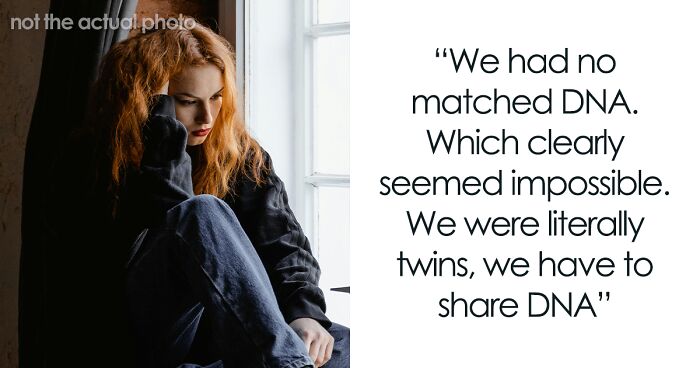
Teen Panics After DNA Results With Her Twin Sister Changed Everything She Knew About Herself
Normally, by the time you’re 18, you have a pretty good understanding of the people around you. Some have already earned your trust, and others have shown you reasons to be cautious with them.
But a teenager who goes online by the nickname Throwra6064 recently shared a story that shows how quickly all of that can turn upside down.
In a post on the popular subreddit ‘Relationship Advice,’ the girl explained that she and her sister took a genetic test for fun, but the results showed they don’t share any DNA.
Now, she feels like an imposter in her own family and wants to hear what outsiders think of the situation, as she no longer knows who’s lying to her and who’s telling the truth.
This teenager grew up thinking that she and her sister were fraternal twins, but a recent genetic test revealed it wasn’t the case
Image credits: Clarisse Meyer / unsplash (not the actual photo)
So she explained what happened on the internet, asking people to help make sense of it
Image credits: Louis Reed / unsplash (not the actual photo)
Image credits: Polina Zimmerman / pexels (not the actual photo)
Image credits: throwra6064
Although not as dramatic, such stories might be more common than we’d like to think
Image credits: Artem Podrez / pexels (not the actual photo)
This scenario may sound like a movie script, but adoption is all around us. For example, there are about 5 million adoptees living in the United States alone, where about 115,000 children are adopted each year.
Furthermore, a quarter (25%) of Americans have a friend or family member who was adopted, and 19 percent say they have a friend or family member who is an adoptive parent.
Among US adults who have considered (or are currently considering) adopting a child, the most common reasons are:
- I want to provide for a child in need (56%);
- I think there is an overpopulation issue (18%);
- I/we have infertility issues (12%);
- I/we have other barriers which would make it difficult to conceive (12%).
When—and even whether—adoptees should find out about their familial status has been a hot topic even among experts. For much of the 20th century, it was common for parents to simply never reveal their adopted children’s origins to them; research conducted in the 1970s showed that most parents didn’t.
In 2019, Amanda Baden, who has been studying adoption-adjacent issues for 25 years, and her colleagues published a study on the outcomes associated with the discovery of adoption status at different stages in life.
The results revealed that “those in the earliest age group of adoption discovery, birth to 2 years of age, reported both the least distress and the highest level of life satisfaction,” and that adoptees “who consciously recalled the revelation and their age at discovery (aged 3 and older) reported comparatively higher levels of distress that increased with later ages of discovery.”
So by withholding the information from the girl for so long, the Redditor’s family could have made her life more difficult.
You might be asking yourself why she hadn’t noticed anything before. But visual cues can mean very little.
Monozygotic, or identical, twins are conceived from one fertilized egg. This egg separates into two embryos after it has begun to divide, and they develop into two babies.
In these cases, genetic materials called chromosomes in both babies are, indeed, completely identical. This is because both babies come from the same egg and sperm. So both children are assigned the same sex at birth and share the same characteristics, such as eye and hair color.
(It is worth mentioning, however, that due to the differences in the environment where they’re born (like the amount of space each had in the uterus), identical twins may still have slight differences in appearance.)
But fraternal twins “are made” when the birthing parent’s body releases two eggs simultaneously and a different sperm fertilizes each egg.
Since fraternal twins come from different eggs and different sperm, they share the same percentage of chromosomes as any other siblings. According to the National Human Genome Research, the figure, just like the Redditor said, is about 50 percent. This is why they don’t always look alike, and probably why the sisters didn’t question their bond.
As her story went viral, the author of the post joined the discussion in the comments and answered some of the most pressing questions
Eventually, the teenager released an update
Image credits: olia danilevich / pexels (not the actual photo)
Poll Question
Thanks! Check out the results:
My cousin was adopted. She's my cousin. End of story.
Country not named, but in many countries the adoption laws include the right of the child to receive all details about their biological parents when asking for it. Hope OP will get her birth certificate soon, which she will need anyway for a lot of administrative actions later in life. At least in Europe.
They shouldn't have lied to you, they denied you not just the chance to explore other heritage (real or imagined) but also embedded some shame in the adoption process. Being adopted is amazing. Best of both worlds. You have a family and that's solid and you know you were definitely wanted, you didn't arrive by accident, and you have the story of that family, but you also get a bonus story of you genetics. You are the exotic one in the family. Not a tangible benefit, but good for hours of semi research and imagination. I find it makes me more a citizen of the world because anyone could be my sibling. It strengthens my empathy and my care for world events. And you are right, family is family, it's not based on DNA, so the rift with your twin is not permanent and they do love you, they just f-cked up
Not to mentioned how important it is to know her biological family’s medical history. It’s really messed up when you think about the consequences of having been lied to about your family’s medical history.
Load More Replies...My cousin was adopted. She's my cousin. End of story.
Country not named, but in many countries the adoption laws include the right of the child to receive all details about their biological parents when asking for it. Hope OP will get her birth certificate soon, which she will need anyway for a lot of administrative actions later in life. At least in Europe.
They shouldn't have lied to you, they denied you not just the chance to explore other heritage (real or imagined) but also embedded some shame in the adoption process. Being adopted is amazing. Best of both worlds. You have a family and that's solid and you know you were definitely wanted, you didn't arrive by accident, and you have the story of that family, but you also get a bonus story of you genetics. You are the exotic one in the family. Not a tangible benefit, but good for hours of semi research and imagination. I find it makes me more a citizen of the world because anyone could be my sibling. It strengthens my empathy and my care for world events. And you are right, family is family, it's not based on DNA, so the rift with your twin is not permanent and they do love you, they just f-cked up
Not to mentioned how important it is to know her biological family’s medical history. It’s really messed up when you think about the consequences of having been lied to about your family’s medical history.
Load More Replies...
 Dark Mode
Dark Mode 

 No fees, cancel anytime
No fees, cancel anytime 



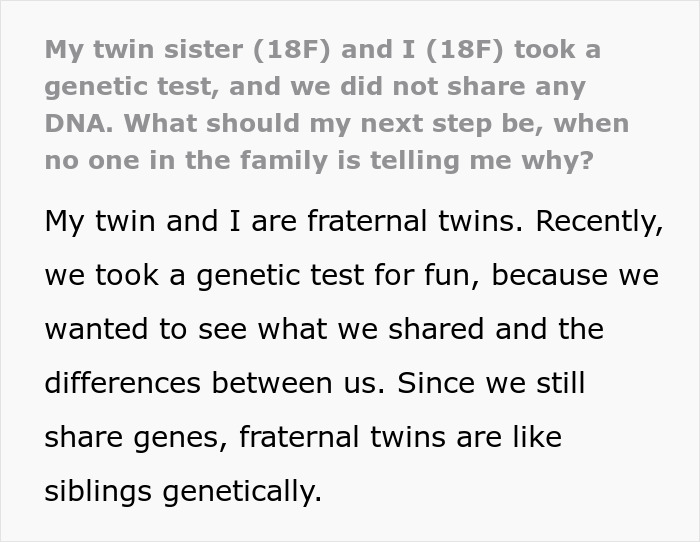

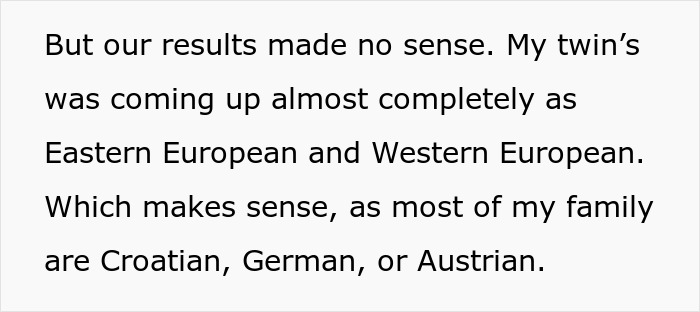
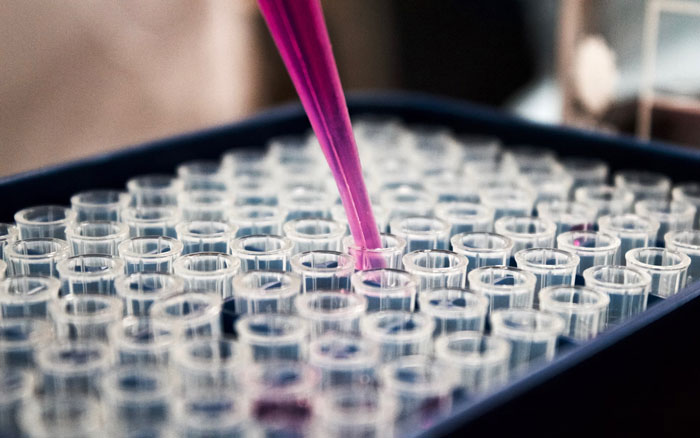
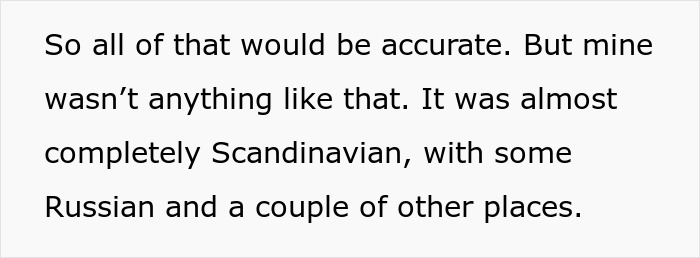
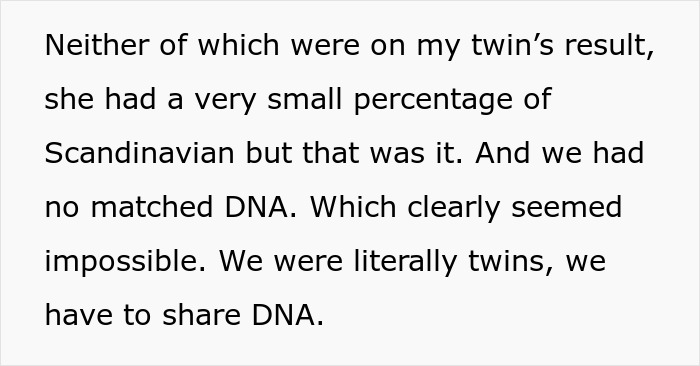
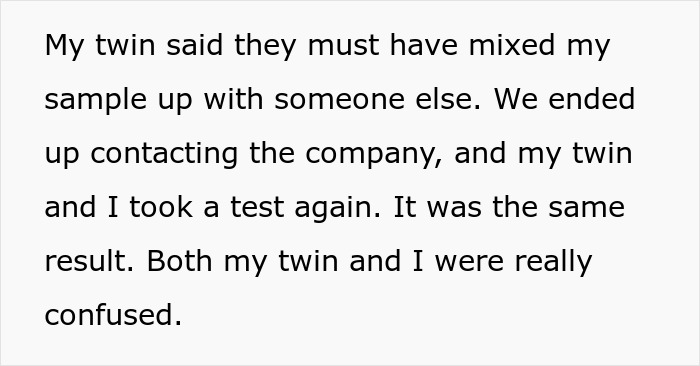
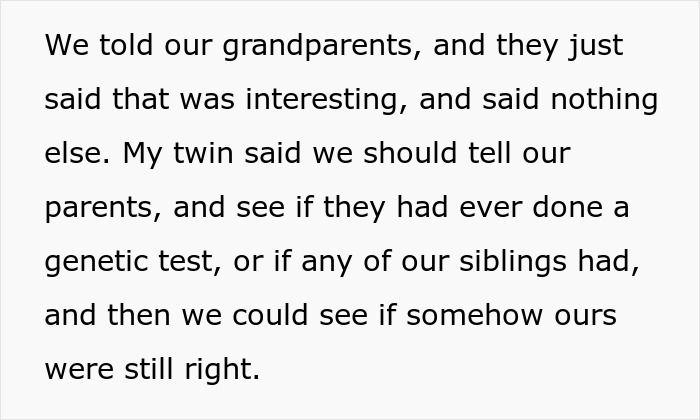
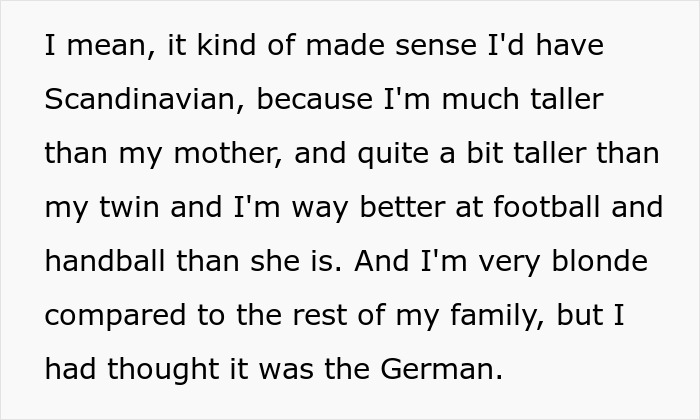
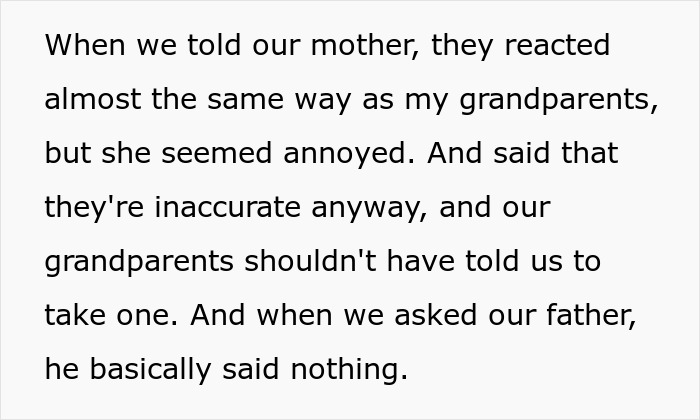

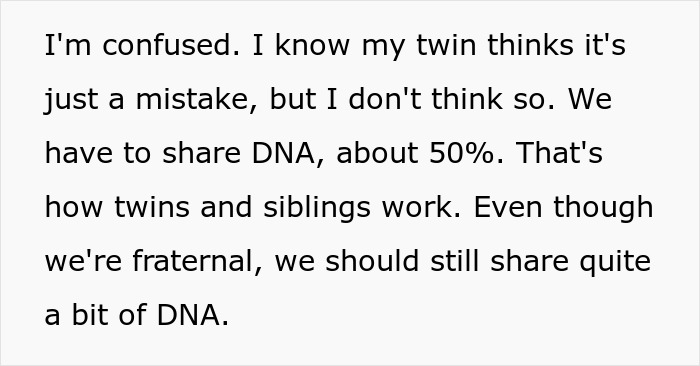
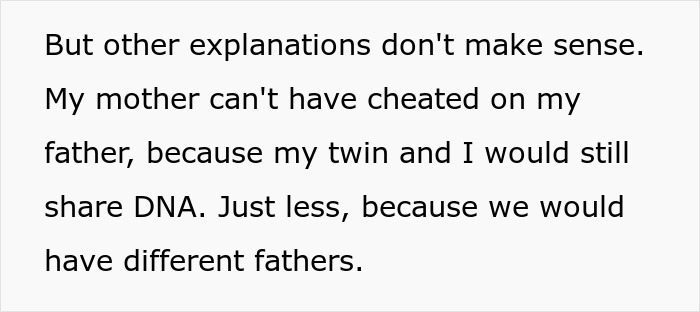
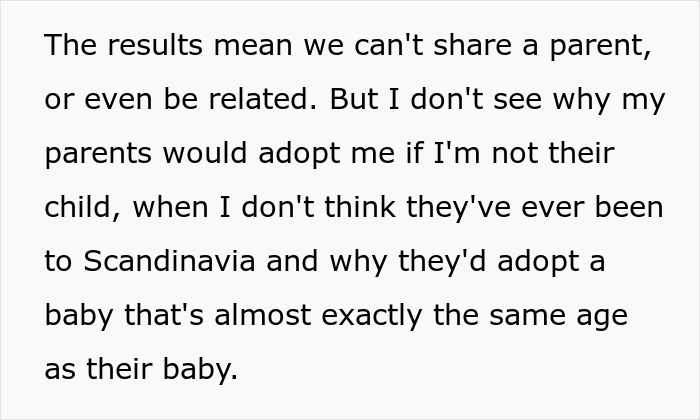
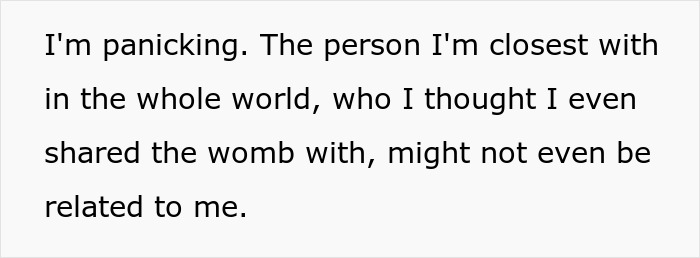
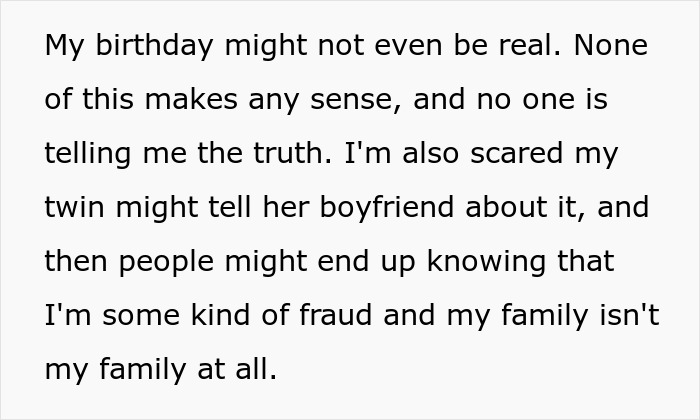
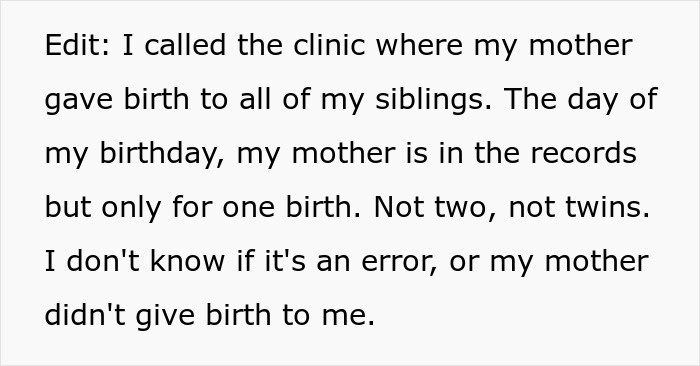

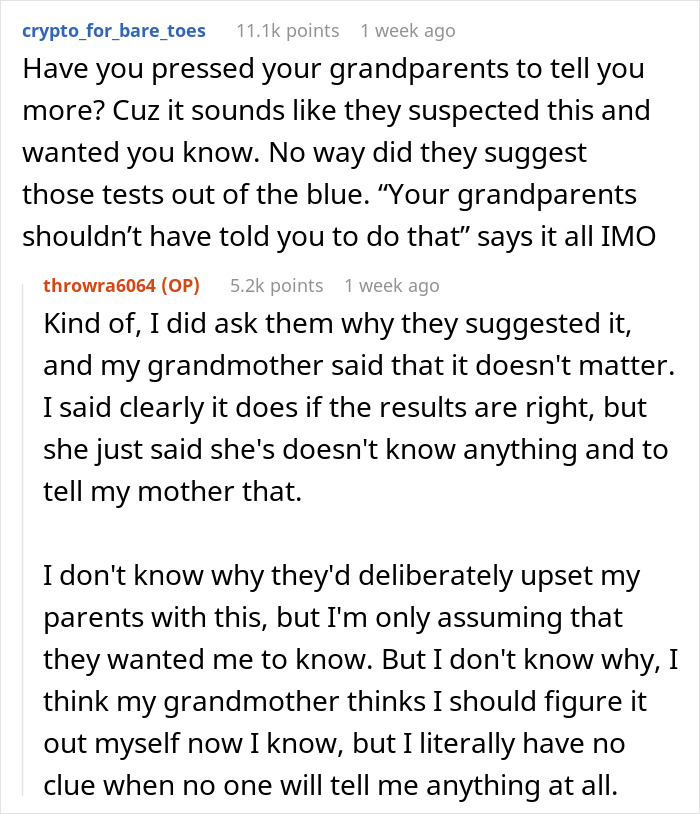
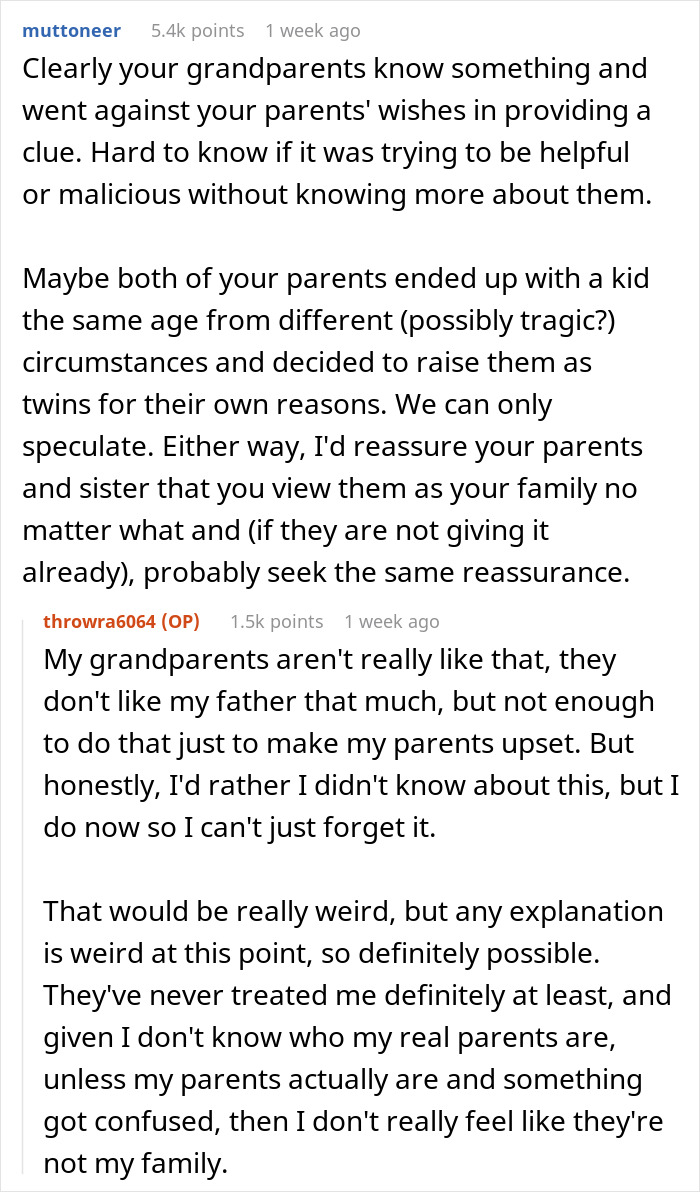
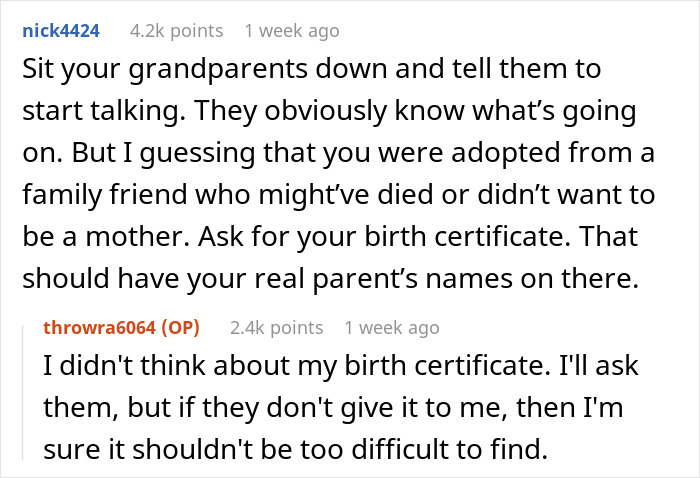
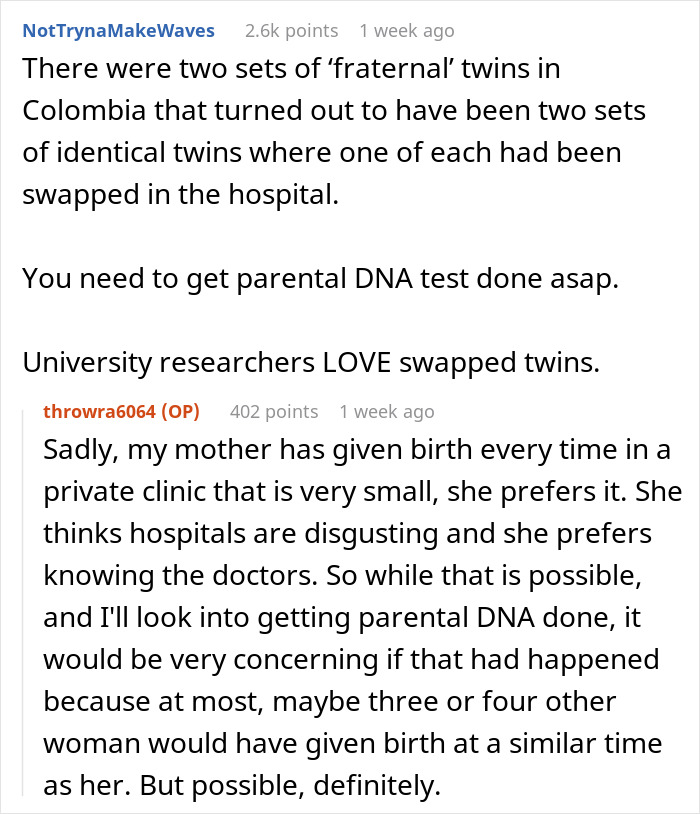
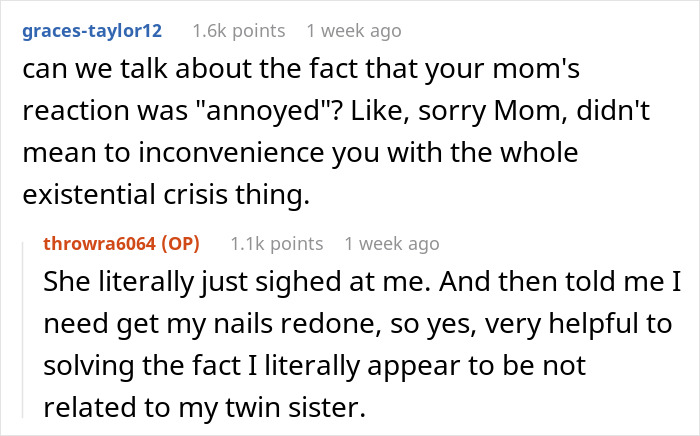
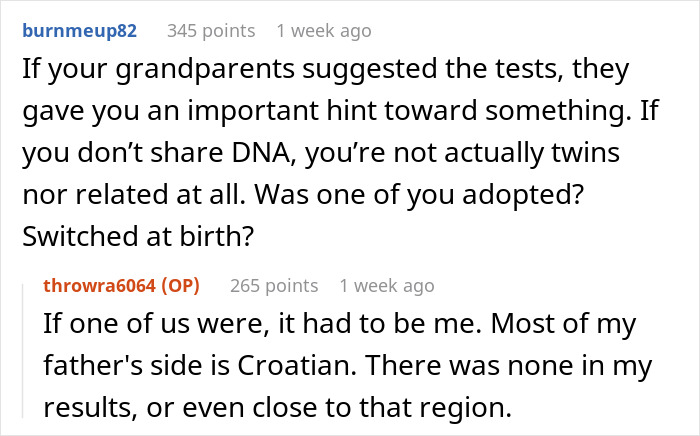
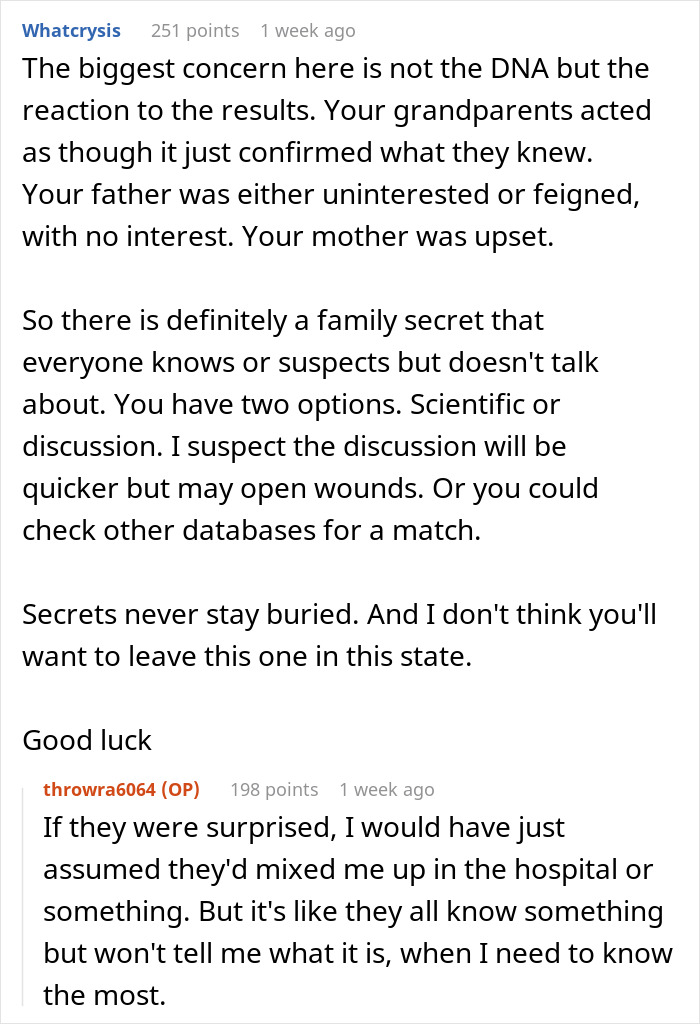
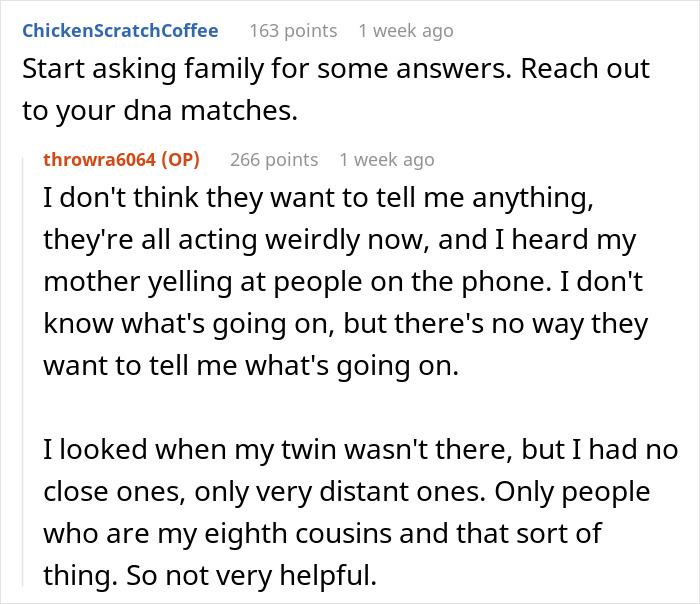
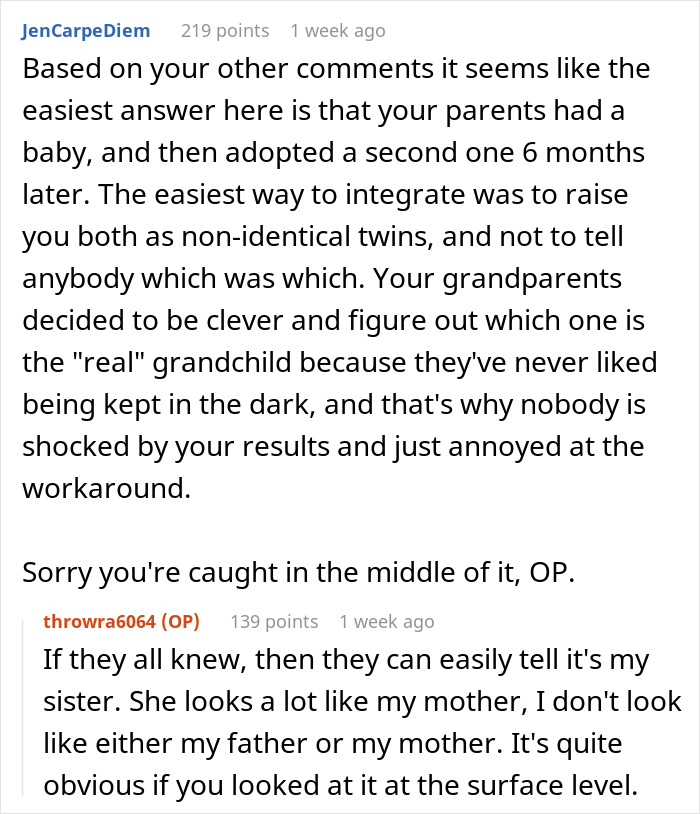
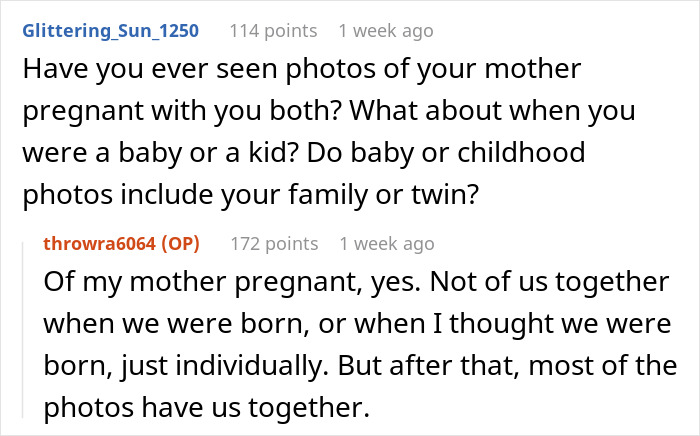
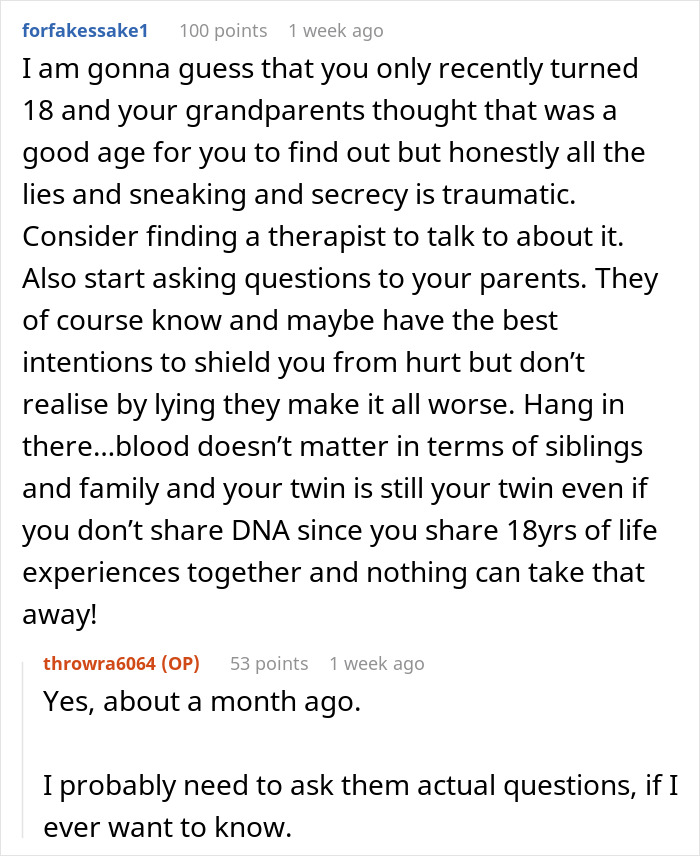
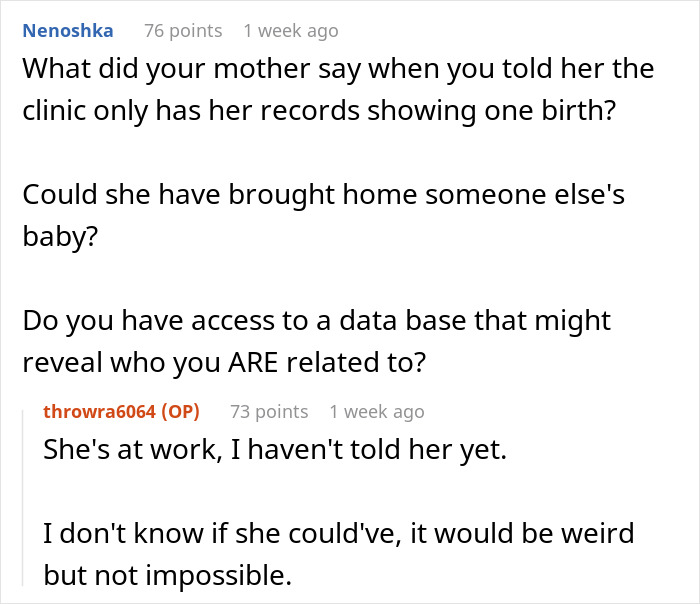

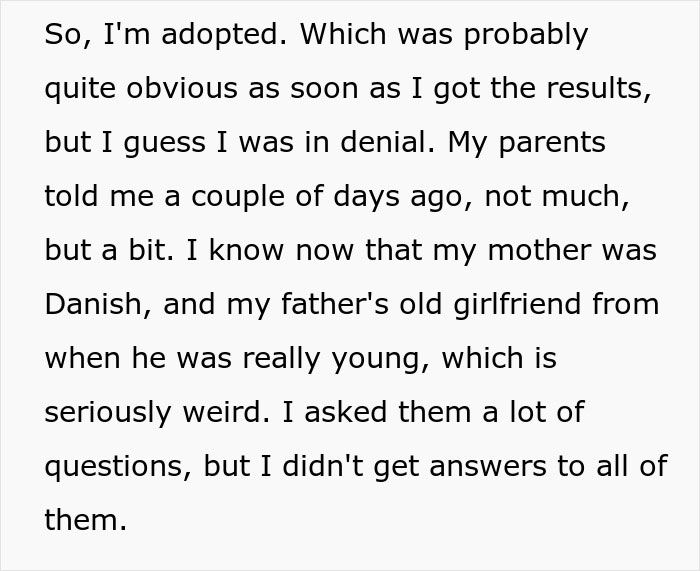

















































54
43